|
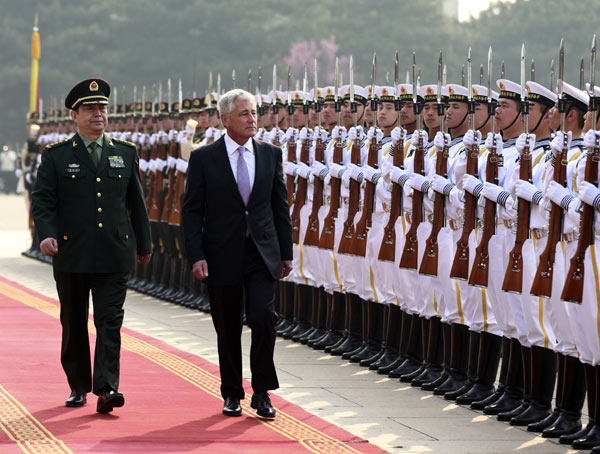 |
|
Chinese State Councilor and Defense Minister Chang Wanquan (L) and US Defense Secretary Chuck Hagel inspect the guard of honor during a welcoming ceremony held for Hagel in Beijing on Monday. [Photo by Feng Yongbin/Asianewsphoto] |
Hagel's four-day trip seen as a golden chance for positive Sino-US interaction
In a gesture rich in symbolism, US Defense Secretary Chuck Hagel started his first trip to China since taking office with a landmark visit to the Liaoning aircraft carrier on Monday, the first foreign visitor to board the ship.
Military experts said the visit showed Beijing's commitment to military transparency and underscored its sincerity to strengthen trust and cooperation with the United States.
|
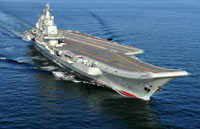 |
|
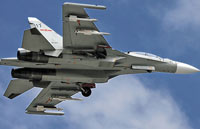 |
|
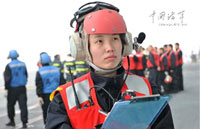 |
Washington placed a request for the "significant" carrier visit and China agreed, a senior US defense official told media outlets on condition of anonymity.
Shortly after his arrival in the port city of Qingdao, Shandong province, at noon on Monday, the Pentagon chief was welcomed aboard the Liaoning to kick off his four-day trip to China.
Washington has been interested in the Liaoning's development, so this visit provided a golden opportunity for a positive interaction and may lead to more cooperation between both sides, said Major General Zhu Chenghu, dean of the Defense Affairs Institute at China's National Defense University of the People's Liberation Army.
The 60,000-metric-ton Liaoning, bought from Ukraine in 1998, was refitted in China before being commissioned in September 2012. Since then it has undergone a series of sea trials, and while its initial focus is on training, it is also a symbol of China's naval modernization in line with its rising national status.
"Washington has often criticized the Chinese military for what it called a lack of transparency, but this is not the first time for Beijing to present its key military infrastructure or latest technology to the US," said Zhu.
In October 2005, the PLA Second Artillery Force, which oversees missile strategy, opened its doors for the first time to foreign guests. Back then it was Donald Rumsfeld, another US defense secretary, who was welcomed.
China is willing to make its strategic intentions and military hardware development clear through such openness, Zhu said, adding that it also wants to forge a dialogue and expand cooperation with the US.
Hagel's visit came just one day after he said he would use his trip to China to press Beijing to use its "great power" wisely.
While in Tokyo, the first stop of his three-nation Asian trip, Hagel promised to send two more ballistic missile defense destroyers to Japan by 2017 to join several US warships stationed there.
He also reaffirmed Washington's military treaty commitments to Tokyo.
Major General Yao Yunzhu, senior researcher at the Academy of Military Science of the PLA, said Washington's military pivot to Asia has led to an increase in regional tension and the US has to clearly consider and define its attitude to a developing Chinese military.
For all the talk about cooperation, Yao said, the US still imposes an arms embargo on China, limits military cooperation to certain fields and sells arms to Taiwan.
Washington also needs to prove its sincerity through actions instead of words, she said.
Major General Zhu said Hagel's remarks in Tokyo indicated Washington will continue to beef up security cooperation with Japan.
"China has neither the intention nor the capability to challenge such cooperation between the US and its allies," Zhu said. "After all, it's not China's direct business."
But China has to keep developing to ensure its own security, and it's inevitable that the US will have to take this into account, he said.
On Tuesday, Hagel is scheduled to meet his Chinese counterpart Chang Wanquan and deliver a speech at the National Defense University of the PLA.
Related:
China tours by Pentagon chiefs
Chinese military institutions visited by top US officials
Media: Japan, US differ in alliance expectations
|
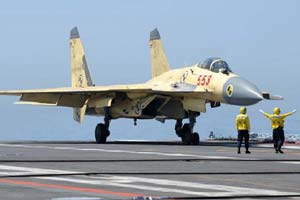 |
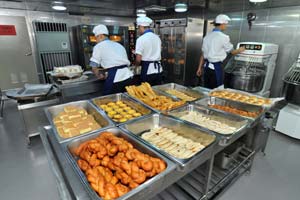 |
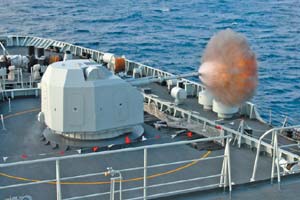 |
|
|
|
|
|
|
|
|